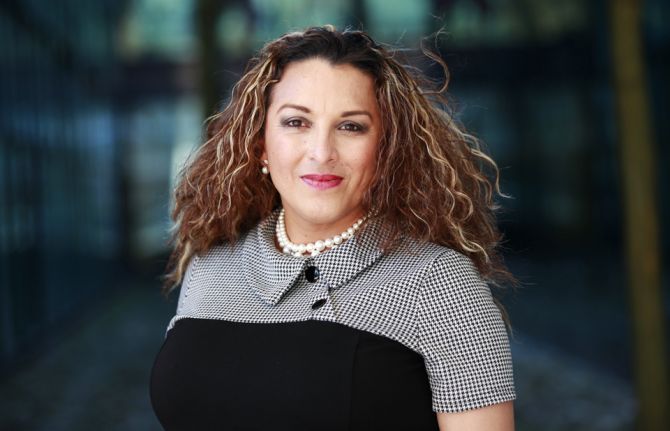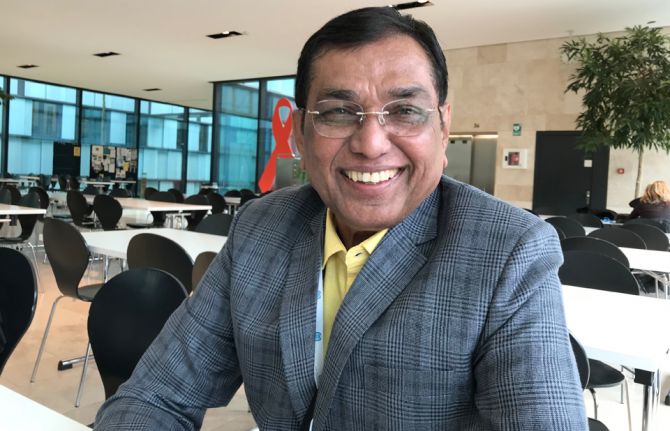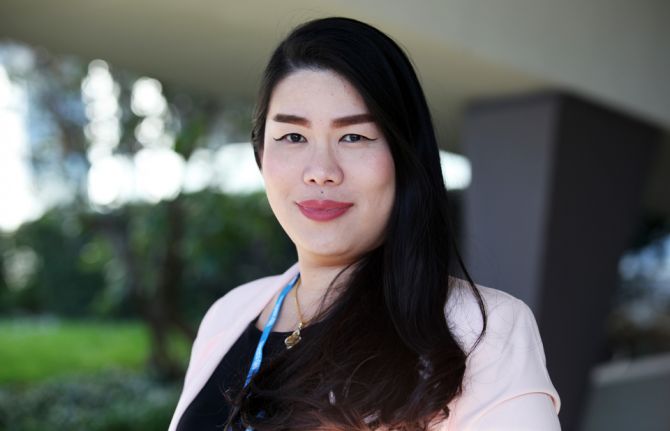



Feature Story
Voices of activists for transgender rights
29 March 2018
29 March 2018 29 March 2018For the Transgender Day of Visibility, UNAIDS talked to transgender activists about the challenges they face and the importance of improving the visibility of transgender people.
Erika Castellanos is a transgender woman from Belize who recently moved to the Netherlands to work at GATE (Global Action for Trans Equality) as the Director of Programmes. She has been engaged in transgender and HIV advocacy at the local, regional and international levels.
What are the challenges that transgender people face?
Transgender people are subjected to stigma, discrimination, hate and violence—the number of transgender deaths because of hate crimes is alarming. In many parts of the world, being transgender is criminalized, which makes transgender people invisible in those places and forces them underground.
Many people do not understand what transgender people are, which translates into fear, the cause of stigma and discrimination. From their childhood, transgender people frequently experience rejection by their families, friends and society, finding themselves ostracized.
Why do you think it is important to give visibility to transgender people?
Visibility is power. Only when given visibility can we raise our voices and advocate for the enjoyment of our human rights. Visibility gives us presence, visibility gives us a voice. Ultimately, visibility gives us hope for a better life. Transgender people are an integral part of society who can no longer be ignored.
What do you think of the representation of transgender people by the media?
Almost all media coverage of transgender people is negative, demeaning or focused on the high murder rates and violence that our communities experience. While it is necessary to highlight the violence, negative and demeaning media coverage that dehumanizes transgender people only serves to perpetuate that violence. By portraying transgender people as objects of ridicule, media coverage places our community in further danger of social isolation, rejection from friends and family and violence.
Rena Janamnuaysook is a Thai transgender advocate at the Thai Red Cross AIDS Research Centre. She has extensive local, national and international experience working with HIV organizations.
What are the challenges that transgender people face in your country?
Thai transgender people face multiple challenges. Our country has no gender recognition law. Stigma and discrimination remains a barrier and leads to inequality. A survey conducted in 2015 by the Thai Transgender Alliance and Transgender Europe reported that 50% of transgender people who participated in the survey had a negative experience with health-care providers. In addition, transgender people experienced physical violence and harassment from families and in school and the workplace.
Why do you think it is important to give visibility to transgender people?
It is important to give visibility to transgender people as transgender people are less visible in all aspects of life—family, education, employment, health and the law. The International Day of Transgender Visibility raises public awareness of the needs of transgender people.
How easy is for transgender people in your country to get tested for HIV and get treatment?
A survey conducted by the Thai Ministry of Public Health in 2014 showed that 15% of health-care workers believed that HIV-positive transgender women should be ashamed of their gender identity and HIV status. This resulted in stigma and discrimination in public health facilities and prevented transgender people accessing health-care services, including HIV testing, treatment and support.
MORE ON TRANSGENDER DAY OF VISIBILITY
The Transgender House: a community centre for transgender people in Buenos Aires
Kirit Solanki is an Indian politician who represents the Ahmedabad West constituency of Gujarat.
Can you tell us about your work with transgender people in India?
I trained as a doctor and became a surgeon. A patient came in and said that she had difficulty going to the bathroom. I realized that she was a transgender person and her sex change operation had not been properly done, effectively blocking her urethra. After a successful insertion of a catheter, word got around that I had saved the woman’s life. I suddenly had queues of transgender women come to my clinic with similar conditions.
What did you observe regarding treatment and care for transgender people?
I saw that so many transgender people needed various operations, but I found out that many of them were avoiding clinics and hospitals. When I finally got them to the hospital, they settled in the female ward. Within a day, the other patients complained, so the hospital sent them to the men’s ward. They fared no better there. That’s when it really dawned on me how pervasive discrimination against transgender people is.
What are you and other members of parliament trying to do?
It took 10 years for the Indian parliament to pass the HIV/AIDS bill, which makes life-saving treatment a legal right and criminalizes anyone who discriminates against someone based on their HIV status. We also have reintroduced a transgender persons bill to ensure zero discrimination, legal recognition and access to social services for India’s transgender community. It’s time for people to change their attitude and respect transgender people



